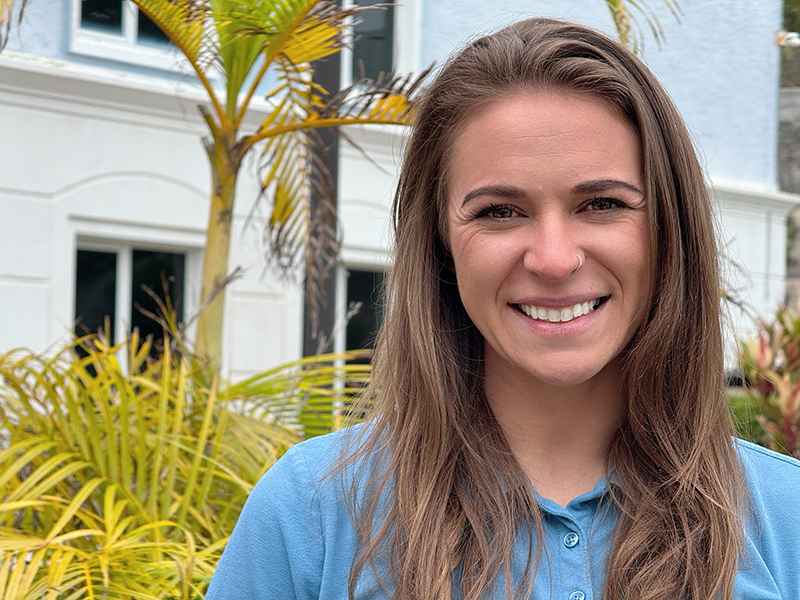Column: Kromko On Occupational Therapy Month
[Written by Courtney Kromko]
At Bermuda Hospitals Board we are celebrating Occupational Therapy Month this April by sharing information about our profession with staff and also with the public.
The occupational therapy profession goes much deeper that what typically comes to mind when we hear the word “occupation.” In the spirit of celebrating occupational therapists [OTs] this month, let’s explore the scope of this role and the value it brings.
So, what is occupation? Trick question – it’s not just a job! Occupation encompasses all the tasks and activities you need or want to perform on a daily basis.
Imagine these scenarios:
- You break your arm, so you have challenges taking care of your children.
- You have a stroke that affects one side of your body and you cannot wash your hair.
- You are a war veteran with a lower leg amputation and you want to play adaptive sports.
- You are a child who is not keeping up with your peers during art class because of delayed fine motor skills.
- You have an intellectual disability and need support to access transportation and carry out your job roles.
There’s an OT for that!
Occupational therapy’s distinct evidence-based practice involves task analysis, the art of breaking down an activity [or occupation] into the smallest steps to determine where there may be dysfunction. OTs can then intervene with strategies to either remedy or compensate for these barriers.
Remediation focuses on restoring function through rehabilitation. More specifically, we work with you to improve underlying issues, such as decreased strength, sensation and coordination. Compensation strategies look beyond just your functional impairment and consider context, like making changes to your environment or modifying activities.
The scenarios are just examples to give you insight into some of the many ways occupational therapy can help across your lifespan. The eight main pillars of occupation are:
- activities of daily living [toileting, bathing, dressing, feeding, sexuality]
- instrumental activities of daily living [home management, meal preparation, driving, financial management]
- rest/sleep
- play
- leisure
- school
- work
- social participation
Simply put, occupational therapy embodies all aspects of function. Function is subjective, patient-centred, goal-directed, holistic and limitless. Function is intimate and goes beyond analysing an occupation. Function is participating in an activity with your hands that bridges the gap to healing your mind, body and heart.
I often say OTs are leaders of holistic healthcare. We can do it all by understanding all contexts. OT professionals have the opportunity and skill to create a connection with you that is motivating and meaningful. Arguably, occupational therapy is one of the most empowering, uplifting, creative and meaningful professions that helps put life into the days of individuals.
Now, let’s celebrate occupational therapists!
- Courtney Kromko has a doctorate in occupational therapy and is a specialist in lymphoedema, a long-term chronic condition that causes swelling in the body’s tissues. She has been in practice for eight years and has provided both occupational therapy and lymphoedema services at King Edward VII Memorial Hospital since 2020.
Read More About
Category: All


